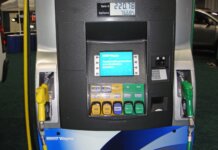At its annual awards reception in New York City last week, Energy Vision, a national nonprofit that researches and promotes low-carbon energy and transportation strategies, presented awards for entities helping speed the adoption of renewable natural gas (RNG).
The 2018 Energy Vision awardees are as follows:
- The City of Toronto, Ontario, which collects residential food waste and will soon process it into RNG to power its refuse trucks, which collect more food waste – representing a virtuous cycle, or closed-loop, system;
- The Kroger Co., which processes its organic waste at its anaerobic digesters at locations in California and Indiana and uses the fuel to heat its warehouses and power trucks in Oregon;
- Philip J. Landrigan, director of the global public health program at the Schiller Institute for Integrated Science and Society at Boston College, noted child health expert, and author of “Children and Environmental Toxins: What Everyone Should Know,” who advocates for ending reliance on diesel trucks and buses and adopting clean alternatives to improve public health; and
- James S. Cannon, president of Energy Futures Inc., who received Energy Vision’s lifetime achievement award for his work conducting seminal research in the fields of alternative energy and alternative transportation fuels.
Over the past four decades, Cannon has consulted for clients in 30 U.S. states and 20 countries. He noted a parallel between the start of his career in the early 1970s and today.
“1971 was not a very good year, but it was a good opportunity,” Cannon said as he accepted the award. “Out of the pits of the Vietnam War came the largest body of environmental legislation ever hatched by any country at any time. It was a revolution in the environmental field, which we were a small part of. Maybe today is similar. Maybe there are young people out there who are idealistic and out of this difficult time can help ignite the next revolution and the next exciting step.”
“Since 2002, we have been quietly working north of the border to try to find a way to harness the green energy potential of the biogas produced from processing Toronto’s source separated organic waste,” said Carlyle Khan, director of infrastructure development and asset management for the solid waste management services division of the City of Toronto, who accepted the Energy Vision award. “We had a vision to create renewable natural gas from organic waste, and we’re working with our partners to make it happen. Our ultimate vision is to reduce our impact on the planet by creating a renewable resource and reducing our greenhouse-gas emissions.”







